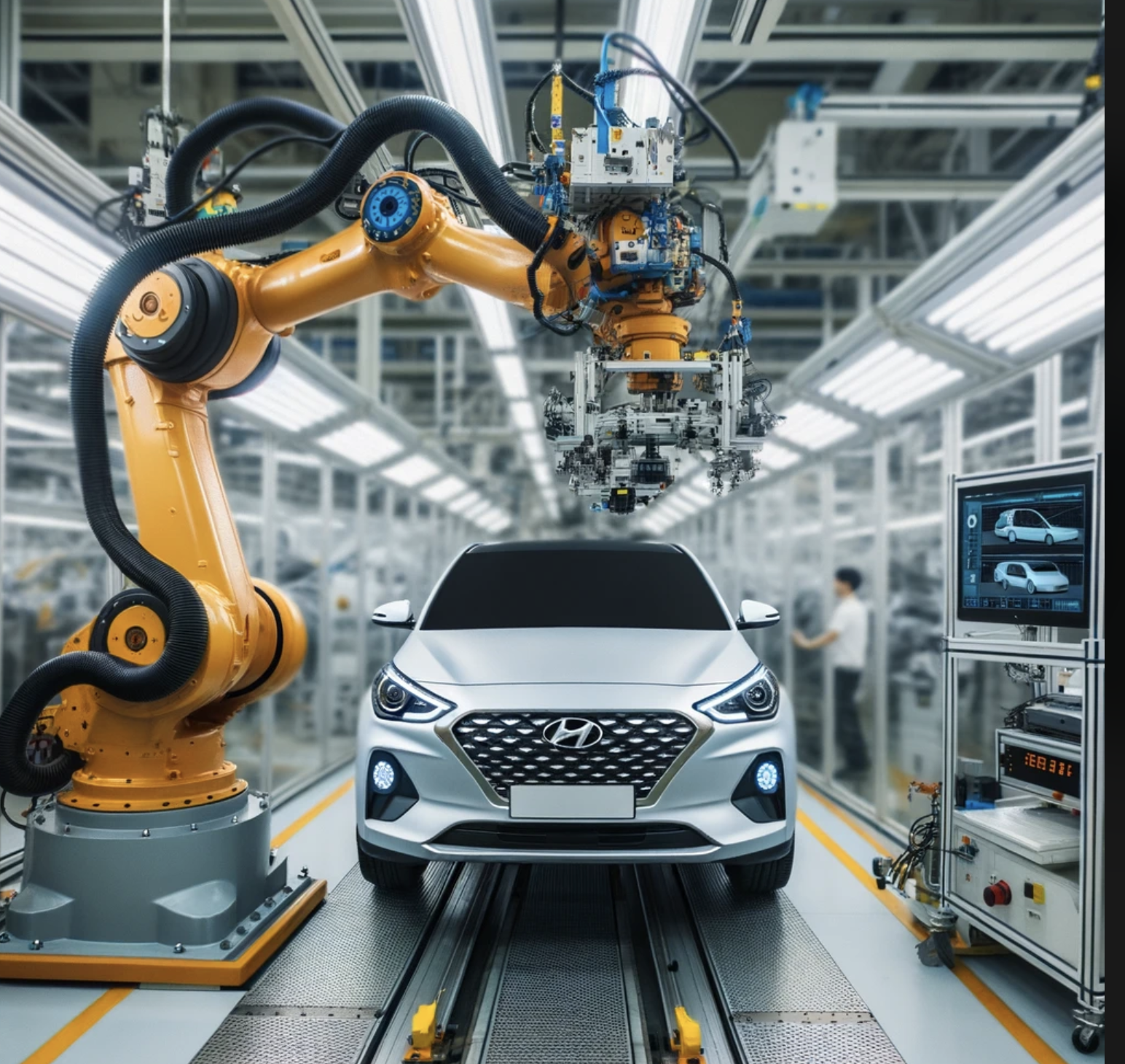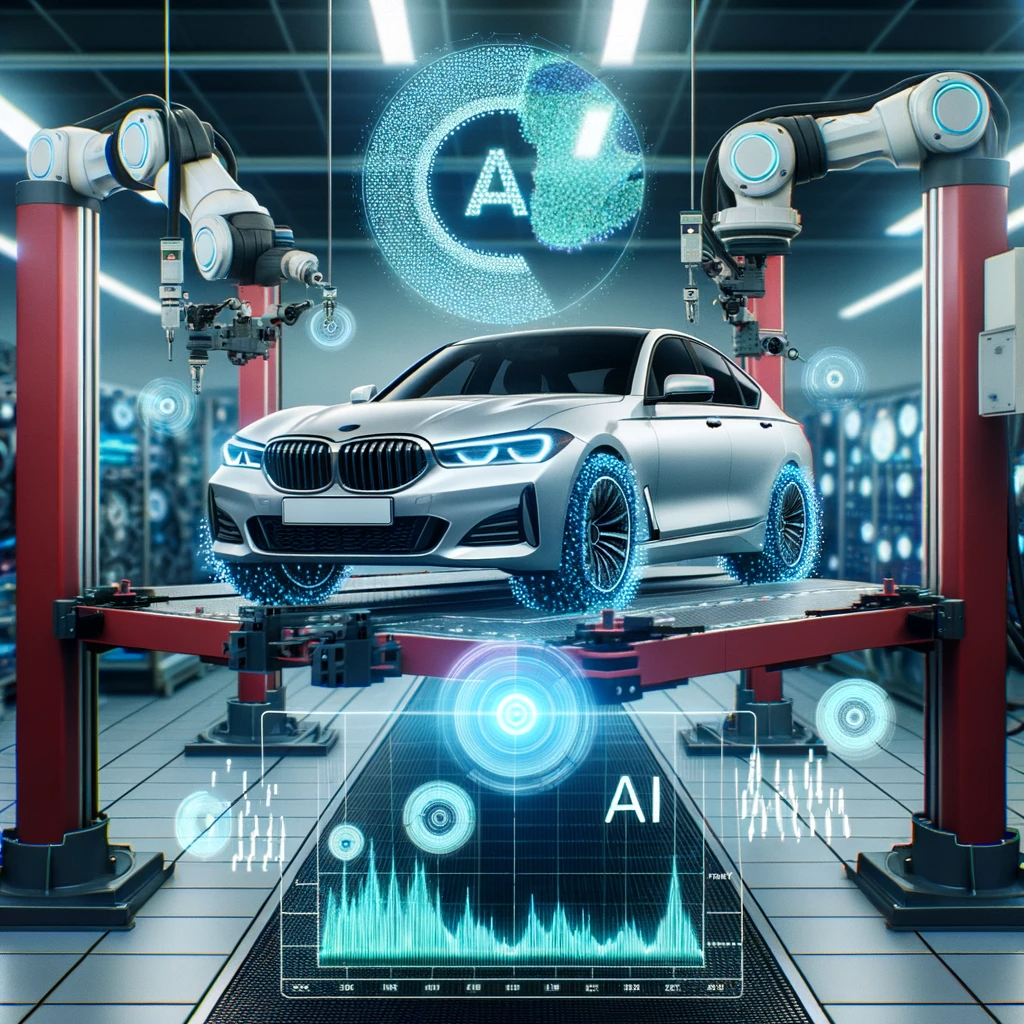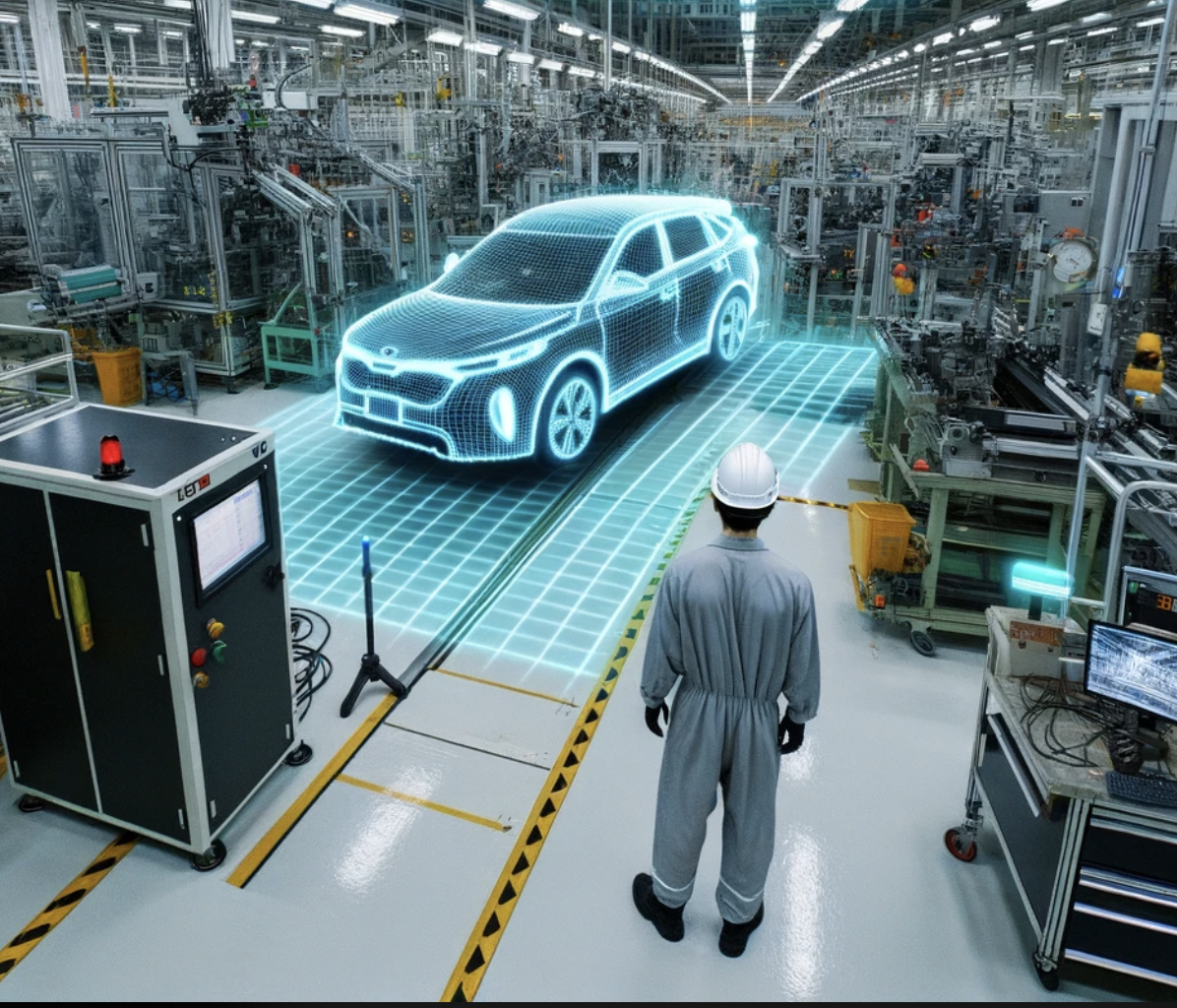Artificial Intelligence in the automotive sector's manufacturing process
A few weeks after our first masterclass on "AI at the service of business" coordinated by Ye Seul Kim, Bullo and Lazzini, LFM University is pleased to announce that starting this week it will begin sharing on its blog and on own channels a series of articles and updates that will deal with the numerous applications of artificial intelligence applied in various sectors. Today we will talk about AI applied in the automotive manufacturing sector, a sector that the LFM company has loved for years, having worked with various brands such as Ferrari, Smart, Citroen, Mercedes, Volkswagen, Volvo and Seat.
Artificial Intelligence revolutionizes automotive production
In the era of digitalization, Artificial Intelligence (AI) is becoming a fundamental pillar for many industries. One of the pioneers in this field is the automotive industry, with Hyundai Motors and Tesla emerging as a leader in implementing AI in its manufacturing operations. Before looking at the specific case of the two companies, let's try to better understand the background of the automotive industry in relation to innovation and AI.
The automotive industry is a perfect melting pot for innovation. Among the most relevant advanced technologies we find: deep learning, digital twin and Light detection & ranging better known as LiDAR. Let's look at them briefly.
1.Deep Learning subcategory of machine learning based on neural networks with three or more layers, tries to simulate the behavior of the human brain, allowing it to "learn" from large amounts of data. In the automotive industry, deep learning plays a critical role, especially in emerging technologies such as self-driving cars. These deep neural networks can recognize and classify objects within the data, such as obstacles or traffic signs, accurately. For example, convolutional neural networks (CNNs) are used for computer vision and image classification, allowing cars to detect and interpret their surroundings. Through deep learning, cars can improve their ability to navigate, avoid accidents, and interact with the environment.
2.Digital Twin is a digital representation of a physical object, person or process, contextualized in a digital version of its environment. This technology allows you to simulate real situations and their outcomes, facilitating more informed decisions. In the automotive sector, a digital twin can represent a vehicle, allowing its behavior to be simulated in various scenarios. For example, through the digital twin, companies can carry out rapid testing and optimization of vehicle designs, identify defects before actual production and monitor vehicle performance in real time. This leads to greater efficiency, reduced time to market and improvements in product quality.
3. LiDAR or light detection & ranging, a technology that uses laser light to measure distances and create three-dimensional maps of objects. It works by emitting a laser pulse and recording the time it takes for the reflected light to return to the receiver, thus calculating the distance. It is crucial for autonomous vehicles, providing precise data on the distance and shape of surrounding objects.
These technologies not only aim, in the automotive world to improve efficiency and precision but also to ensure superior quality control, greater vehicle stability and optimal safety in the workplace. Let's now look more closely at the Hyundai case.
These technologies not only aim, in the automotive world to improve efficiency and precision but also to ensure superior quality control, greater vehicle stability and optimal safety in the workplace. Let's now look more closely at the Hyundai case.
Hyundai, AIRS & KT AI revolution
Hyundai Motor Company, together with Kia, are leading names in the global automotive industry based in South Korea. But what sets Hyundai apart is its dedicated AIRS division, exclusively focused on Artificial Intelligence. Furthermore, in collaboration with KT, a major telecom company in South Korea, Hyundai has made great strides in adopting AI.
AI in Action at Hyundai
Quality enhanced by Technology: Hyundai has adopted the DEEP LEARNING we just talked about above, to inspect car paint, quickly identifying and solving problems, almost completely eliminating human intervention. This innovation is not only limited to the automotive industry but also extends to the retail sector.
-

Image for illustrative purposes -
Optimal stability: AI plays a crucial role in optimizing wheel alignment. By analyzing historical data, AI is able to predict optimal adjustment values, ensuring unprecedented driving precision.
 Image for illustrative purposes
Image for illustrative purposes -
Safety first: Worker safety is of primary importance. KT has developed an 'AI Virtual Fence' for Kia's automotive plant. By integrating AI with a 3D LiDAR sensor, this safety system can automatically detect the presence of people in dangerous areas, stopping operations to ensure the safety of personnel.

Image for illustrative purposes
Of course, Hyundai and Kia are not the only automotive companies to have widely embraced AI, in fact many other companies are adopting Artificial Intelligence to improve their production processes. For example, Tesla uses vision systems for quality control, let's take a closer look at this case study.
Tesla , AI and MVS system
Tesla applies Artificial Intelligence (AI) and Computer Vision Systems (MVS) to optimize and accelerate its manufacturing processes. In its manufacturing facilities, Tesla has implemented advanced MVS for quality control. These systems use high-resolution cameras and image processing algorithms to inspect vehicles in real time during assembly. They check the alignment of body panels, paint quality and other visual parameters, identifying defects with an accuracy that surpasses human capabilities.
If irregularities are detected, they are corrected manually or automatically, ensuring that every Tesla vehicle adheres to rigorous quality standards. Tesla's use of MVS helps improve quality control during the production of their vehicles, reducing time on the production line and improving the manufacturing process.
The transformative technologies behind these systems, including image processing algorithms and Artificial Intelligence, enhance their functionality and capabilities. These technologies are rapidly evolving, with advances such as improved sensor technology and integration with robotics pushing the industry forward. Companies like Tesla testify to the large-scale potential of integrating MVS and AI, pointing to a future where such systems are ubiquitous in manufacturing facilities. Looking towards this future, it is clear that MVS will continue to drive improvements in quality and operational efficiency in manufacturing, shaping the industry for years to come.
If the Tesla case has intrigued you, you can learn more about it here.
Conclusion & food for thoughts
In this article we learned how AI can have significant impacts on the automotive production process and in particular in 3 points to remember:
1. INCREASE IN QUALITY thanks to technology
2. OPTIMAL STABILIZATION thanks to data learning
3. SAFETY thanks to the "AI Fence" or delimited areas to reduce the risk of workers
Let us know what you think, and get ready for our next articles on AI applied to various sectors! LFM University never stops and we can't wait to share updates on our masters and training courses. Stay tuned!
